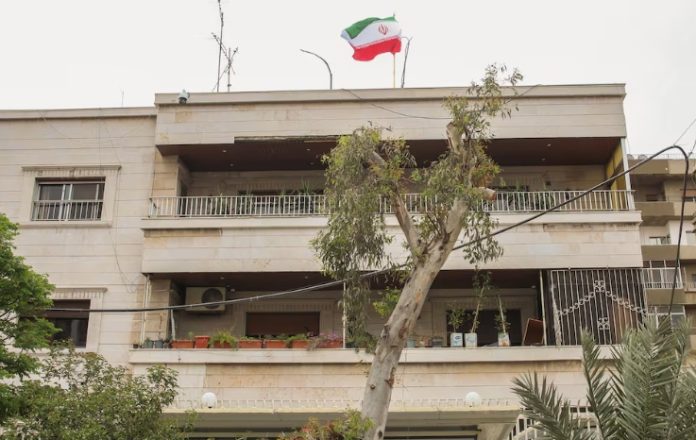The Middle East was again close to a sharp escalation and development of the regional conflict on Monday night. Iranian troops were as active as they were before the April strike on Israel, Axios correspondent Barak Ravid reported, citing unnamed Israeli and US officials.
The retaliation will be decisive
A Hamas spokesman in Tehran said Iran’s response to Israel’s assassination of the head of the Palestinian resistance group’s politburo would be “definite and decisive” and would be carried out at a “substantial level.”
Khaled Qaddoumi made the statement on Monday, stressing that Iranian President Masoud Pezeshkian assured Khalil al-Hayya, deputy head of the Hamas politburo in Gaza, that nothing but decisive action can be considered as retaliation for the assassination of Ismail Haniyeh, the political leader of the Palestinian Islamist group Hamas.
He added that Iranian Parliament Speaker Mohammad Baqer Qalibaf, during meetings with Hamas representatives over the past few days, also emphasised that Iran’s response would be definite, decisive and different in nature and manner. Qaddoumi said:
Experience has proven that the Zionist regime will press ahead with its crimes in case it does not receive an answer… The most important reason why a criminal like [Israeli Prime Minister Benjamin] Netanyahu is forging ahead with its genocide is the absence of diplomatic pressures from the United States. He does not feel such strains.
The senior Hamas official emphasised that Iran will definitely respond to Israel’s killing of Haniyeh on a substantial level, and regretted that “the occupation regime” in Tel Aviv does not feel pressure from any other party, in West Asia or anywhere else.
It is very difficult to comment on the extent of the retaliation, Qaddoumi said, but noted that the legitimacy of Iran’s response to Haniyeh’s assassination is not in doubt.
Iran’s retaliation is an issue whose necessity is emphasised even by Iranians themselves, he said, adding that Leader of the Islamic Revolution Ayatollah Seyyed Ali Khamenei, President Masoud Pezeshkian and all Iranian authorities have placed special emphasis on it.
Haniyeh, who was in Tehran for the swearing-in ceremony of Iran’s newly elected President Pezeshkian along with other leaders of the Resistance Axis, was killed in a terrorist attack on July 31.
Ayatollah Khamenei warned the Israeli regime of a “severe response” for Haniyeh’s murder, calling it the Islamic Republic’s duty to avenge the blood of the Palestinian resistance leader. He said:
The criminal and terrorist Zionist regime martyred our dear guest in our homeland and left us bereaved, but it also set the ground for a harsh punishment for itself.
Europe asks to refrain from attack
Calls by France, Germany and Britain for Iran to show restraint against Israel “lack political logic and contradict the principles of international law,” Iran’s foreign ministry said on Tuesday.
The three European countries issued a statement on Monday calling on Iran and its allies to refrain from attacking Israel following the assassination of Ismail Haniyeh. Iranian Foreign Ministry spokesman Nasser Kanaani said:
Without any objection to the crimes of the Zionist regime (Israel), the E3 statement impudently requires Iran not to respond to a violation of its sovereignty and territorial integrity.
Kanaani also said Tehran is determined to contain Israel and called on Paris, Berlin and London to “stand once and for all against the war in Gaza and Israel’s warmongering.” He added:
The inaction of the United Nations Security Council and the extensive political and military support of Western governments to the Zionist regime (Israel) are the main factors behind the regional expansion of the Gaza crisis.
US prepares in possible Iranian attack on Israel
The White House has warned that the US believes Iran could launch a retaliatory attack on Israel as early as “this week” and that the US should be prepared for an attack that could be “significant.”
The warning comes at a time when the US has bolstered its forces in the Middle East and very publicly announced military action – a move US officials say is meant to deter Iran from a possible attack and ease tensions in the region.
In particular, the Pentagon announced on Sunday that the arrival of the aircraft carrier USS Abraham Lincoln in the region was “accelerating” and also made a rare public announcement that the guided missile submarine USS Georgia was travelling to the Middle East from its current location.
The US assessment echoes Israel’s assessment of the possibility of an Iranian retaliatory strike as early as this week, National Security Council spokesman John Kirby told reporters on Monday. Kirby said:
We share the same concerns and expectations that our Israeli counterparts have with respect to potential timing here, could be this week. We have to be prepared for what could be a significant set of attacks.
